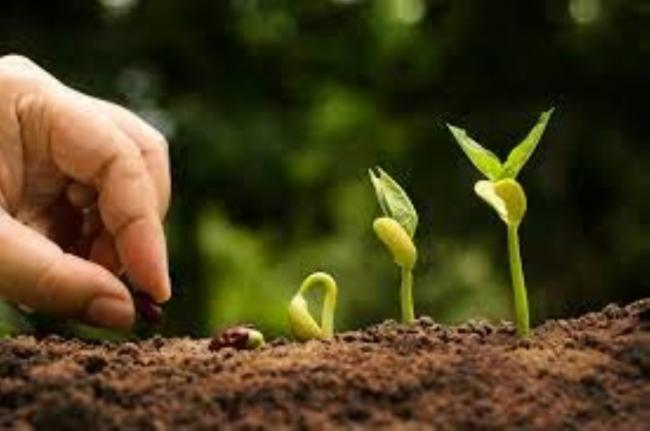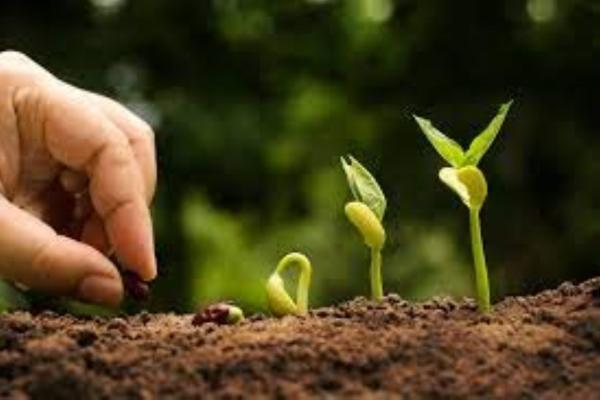NOVAGRO: Innovative organic systems for sustainable and competitive agriculture

Organic Farming has been indicated as a possible solution for increasing the environmental sustainability of the agricultural sector, as long as it can maintain good yields. Organic farming should guarantee appropriate revenues for farmers and an adequate organic food supply to answer a growing demand.
NOVAGRO's main objective is to promote an efficient organic agro-ecosystem, which maintains high yield level and rationalizes the use of natural resources. NOVAGRO will provide a complete overview of the solutions that can be adopted, combined with a detailed analysis of the applied strategies at the farm level.
NOVAGRO aims to introduce: (i) innovative strategies to enhance soil fertility: precision farming technologies, conservation agriculture practices,right crop rotations, functional intercropping and appropriate cover crops; (ii) strategies for the rational management of water resources and efficient irrigation systems: irrigation systems for improving the water use efficiency; limiting weed development; preventing leaching and run-off; (iii) smart and sustainable fertilization strategies: innovative processes fot the effluents treatment and sustainable distribution strategies.
The main challenge that NOVAGRO aims to address is the optimization of the agronomic, economic and environmental sustainability of the organic farming systems in Lombardy. The specific needs, therefore, refer to a series of technical solutions necessary for a sustainable organic farming which NOVAGRO aims to introduce and study in the different farms involved, also thanks to its multi-actor approach. In particular, the farmers requests primarly to face the problem of the yield reduction derived by the organic production system. This yield drop ranges from 20 to 40%, compared to conventional agriculture, depending on the crop considered. The prohibition of the use of synthetic fertilizers also makes it clear that it is necessary to introduce effluents treatment and enhancement processes that facilitate agronomic management, enhance their fertilizing properties and allow their use over a longer period of time, especially during the crop cycle. Finally, the crops irrigation in the Lombardy region is based on inefficient irrigation systems, which can cause nutrients losses and promote weed development. NOVAGRO therefore aims to increase the agronomic, economic and environmental sustainability of the farms involved.
Effect of the composition of the cover crops
The effect of the specific composition of cover crops communities (e.g. diversity and species richness of cover crops) on (i) plant-microorganism interactions, (ii) bioavailability of N and P, (iii) degree of diversity and expression of genes involved in the biogeochemical cycles of C, N and P through molecular investigation and (iv) specific enzymatic activity (Esterases and enzymes involved in the C, N and P cycles).
Development of microbiological soil quality indicators:
Development and application of microbiological indicators of soil quality involved in the nutrient cycle (eg Protease and Phosphatase) and in plant growth factors (eg ACC deaminase, auxin synthesis, atmospheric nitrogen fixation, phosphorus solobilization).
Innovative irrigation management
The application of drip irrigation systems (compared with sprinkler irrigation) will reduce water consumption, improve water use efficiency, reduce infestation and management costs, and contain costs and energy requirements
Starting from a good knowledge of soil hydrology, the relations between soil-plant-atmosphere will be studied and evaluated using forecasting models. These will allow to simulate the development of the root system of plants and the fate of nutrients in the soil. The calibration and validation processes will be carried out with real field data.
Fertigation of crops with the use of microfiltered slurry
Drip irrigation will allow (i) to reduce water waste, (ii) to mitigate weed development, (iii) to fertilize by applying readily available nutrients during the growing season and enhancing livestock effluents. The effects on GHGs emissions and on C sequestration will be measured. Frequency and timing of intervention will be regulated to reduce N losses (leaching, volatilization) and reduce environmental impact.
Evaluation of worm-compost effects
An in-depth analysis will be carried out for evaluating the effects of the use of worms-compost on the N use efficiency (NUE) of the solid fraction of livestock effluents. In addition, in-depth assessments of the biochemical and microbiological dynamics induced will be determined (analysis of the degree of diversity and expression of genes involved in the biogeochemical cycles of C, N and P, and of specific enzymatic activity)
Precison variable rate seeding
The new types of seeders, combined with variable-rate seeding technology, will allow greater seeding rates to be applied to the most productive areas and, on the contrary, to reduce doses where productivity is lower, thus improving crop yield and saving resources /input. Remote sensing in combination with sensor technology
The images will be acquired by flight of Drones and by Satellite (Sentinel 2). The post-processing of the data collected will consist of: (i) production of the output in digital format containing the result of the processing of the multispectral dataset aimed at producing a model containing the vegetative state indices (NDVI); (ii) production in paper and digital format of the vegetative state conditions derived from the NDVI index and vectorized according to the ESRI Shapefile and DWG formats.
Organic, conservation and precision farming systems.
The principles of conservation agriculture (reduction of tillage, crop rotation, permanent soil cover), especially when combined with precision farming technologies, have been widely suggested as a key strategy to increase the potential for C sequestration and mitigation of GHGs. Furthermore, the combination of conservation agricultural practices and technological innovations, in this sense, can favor a more efficient use of resources and nutrients, reducing waste and environmental losses, improving soil properties and yields
Precision soil mapping
The ARP device is an automatic system for detecting soil resistivity, which acquires and processes electrical resistivity data and GPS coordinates in real time. Soil samples from homogeneous areas are analyzed to identify the intrinsic properties of the soil that have the greatest influence on the resistivity data and, consequently, on the characteristics of soil quality.
| Titolo/Descrizione | Url | Tipologia |
|---|---|---|
|
Sito web del progetto
|
Sito web
|
|
|
opuscolo finale del progetto Novagro
|
Materiali utili
|
